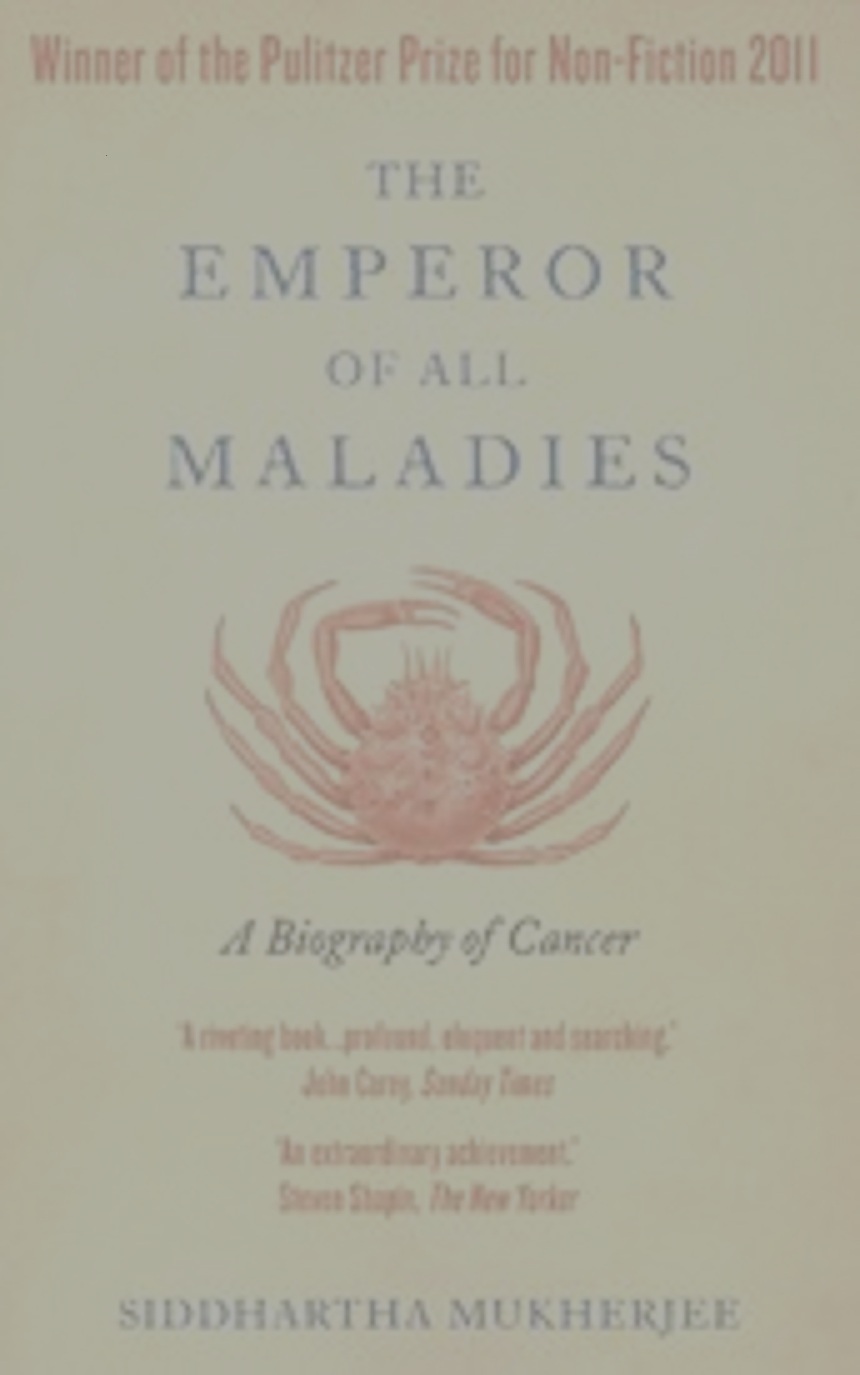

- Front Cover:
"In 2010 about six hundred thousand Americans, and more
than 7 million humans around the world will die of cancer.
In the United States, one in three women and one in two
men will develop cancer during their lifetime. A quarter
of all American deaths, and about 15% of all deaths
worldwide, will be attributed to cancer. In some
nations, cancer will surpass heart disease to become the
most common cause of death". Now read it with conjunction
in page 401: "The mortality for nearly every form of
cancer - lung, breast, colon and prostate - had
continuously dropped for fifteen straight
years....mortality had declined by about 1 percent every
year".
- Farber who was probably the
first to make widespread use of chemotherapy,
especially children with ALL, when it came to his own
cancer: "Farber underwent surgery to remove his inflamed
colon at Mount Auburn Hospital in Boston, likely choosing
the small and private Cambridge hospital across the
Charles River to keep his diagnosis and surgery hidden
from his colleagues and friends on the Longwood campus." (Page
118). It is worthwhile to note Farber kept his
diagnosis a secret and probably did not apply the same
chemotherapy which he recommended for his patients.
- Page 465: "As Doll
suggests, and as Atossa epitomizes, we might as well focus
on prolonging life rather than eliminating death. The War
on Cancer may best be "won" by redefining victory".
- "But with cancer, where no
simple, universal, or definitive cure is in sight - and is
never likely to be - the past is constantly conversing
with the future. Old observations crystallize into new theories;
time past is always contained in time future". [Page
466]
- The story of Germaine (Page 468): "In
the summer of 2004 she was celebrating the fourth
anniversary of her unexpected recovery, the cells of
Germaine's tumor suddenly grew resistant to Gleevec. Her
lumps, having remained dormant for four years sprouted
vengefully back. In months, masses appeared in stomach,
lymph nodes, lungs liver, spleen. The nausea returned just
as powerfully as the first time."
- "In most ancient societies,
people did not live long enough to get cancer. Men and
women were long consumed by tuberculosis, dropsy, cholera,
small pox, leprosy, plague of pneumonia. If cancer existed
it remained submerged under sea of other illnesses.
Nineteenth-century doctors often linked cancer to
civilization:....The link was correct but causality was not:
civilization did not cause cancer, but by extending human
life spans - civilization unveiled it." [Page 44]

